The inhospitable Arctic. The Arktika-2007 expedition: Interview with V. Sokolov
An interview with Vladimir Sokolov, head of the high-latitude Arctic expedition of the Arctic and Antarctic Research Institute (St. Petersburg).
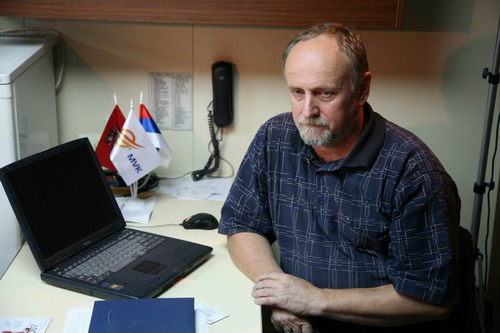
- Vladimir, what is the purpose of the expedition? For the first time in 15 years of research such a wide range of scientific research is being covered!
The expedition on the research vessel Akademik Fedorov is multifaceted. We expect more than 100 scientists to work in the high Arctic, periodically changing on board, and to conduct a large number of studies in the high Arctic within 2.5 months. And what is very important that it will be a major contribution to scientific research that the world communities conduct in the Arctic and Antarctic. Because in those areas where the Akademik Fedorov will conduct research, other ships and expeditions will not work; and in other areas colleagues from abroad will work. If we combine all data in a unified approach and time scale, then it will turn out quite an extensive picture of extremely remote areas of the World Ocean.
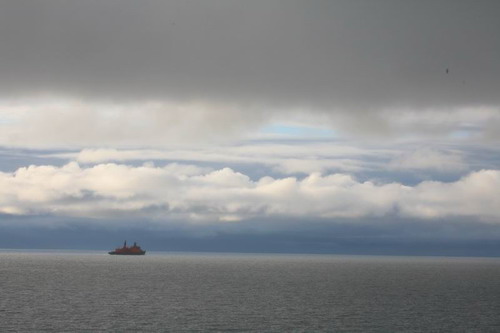
The expedition is unique. The purpose of the first part of the expedition is associated with the campaign to the North Pole and back, the dive of the Mir deep manned submersibles, both when moving to the North Pole and at the North Pole itself. The work itself, in fact, is pioneer, because deep-sea manned vehicles have never gone down under the drifting ice of the Arctic Ocean.
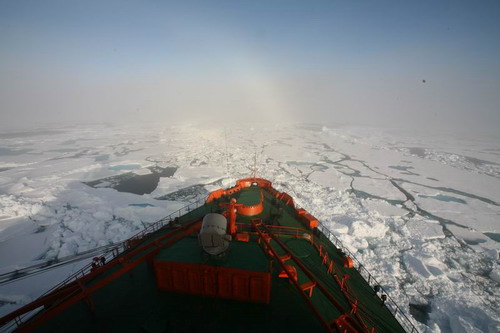
In the foreseeable future we plan major research and applied work on the Arctic shelf under the drifting ice, on the ocean ridges in the Arctic Basin and in parts of the World Ocean bed in the Arctic. Therefore, the MIR apparatus’ diving is extremely important for development of the technology of the work in the region. Also, deep-sea manned vehicles in a controlled manner can select various samples of living and nonliving world.
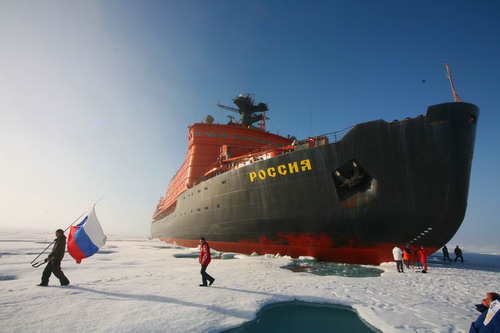
- Will the problem of global warming be studied?
We need to get data to help answer the question “What is happening on the planet? – Do we live in an era of global warming, or in an era of global cycles, generally peculiar to our planet?” Those works will be conducted on the Akademik Fedorov and will then be continued at the SP-35drifting station have much to contribute to understanding of the processes occurring in the high Arctic.
- How true is the claim that the Arctic Ocean contributes to global warming?
It brings a cooling effect and is one of two refrigerators of the planet. However, two years ago, studies of the North Pole (SP) - 33 and SP-34 drifting stations showed that some areas of the Arctic Basin of the Arctic Ocean are the real sources of CO2 (carbon dioxide). This is a very interesting fact. This work will be continued on the Akademik Fedorov and on the North Pole-35 drifting station.
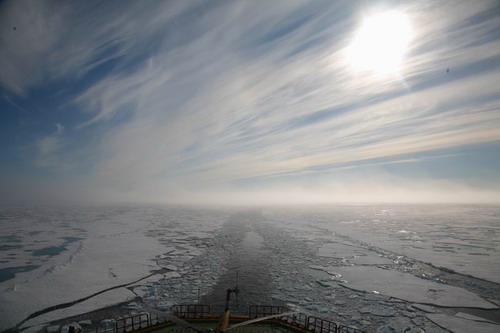
- Will scientists at the SP-35 carry out measurements of the ozone layer?
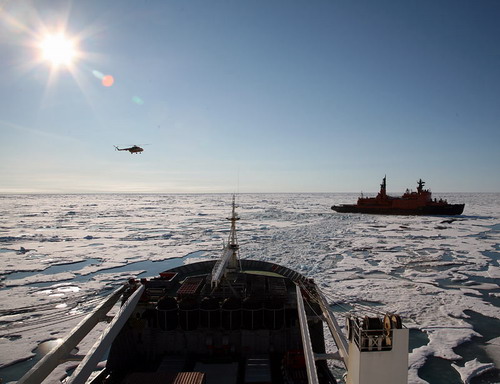
Such a large-scale operation in the high Arctic has never been conducted. Our experts together with our German colleagues from the Institute of Wegener will conduct altitude penetration tests in the polar region of the Arctic. During the eight months sounding of the ozone layer at an altitude of 25 km should be conducted daily. It is very important, as there are theories that there are some breakdowns of the ozone layer in the Arctic and the Antarctic.

- As part of the Arktika-2007 and the SP-35 expeditions, ice sheet research will also be conducted. Tell us how will the so-called “jumping squads” work?
On board the Ak. Fedorov the legendary work for research in the Arctic Ocean will be continued. Flying or “jumping” teams that worked on planes, then helicopters will conduct oceanographic and ice studies at a distance of 300 km from the Ak. Fedorov route. Flying by helicopter from our ship they will land on the drifting ice to conduct comprehensive studies and to install deep-sea oceanographic stations. The study is unique because only in 2004 for the first time in the history of the Arctic, these specialists have tried to land on such destroyed, melting ice in the Arctic summer (in August).
- What does the word “Arctic” mean for you?
The Arctic is part of my life! If only one year I do not go to the North – the year is lost for me. This is due to the way of life and thoughts that have developed over the years that I worked in the Arctic and Antarctic Institute, and engaged in Arctic research.
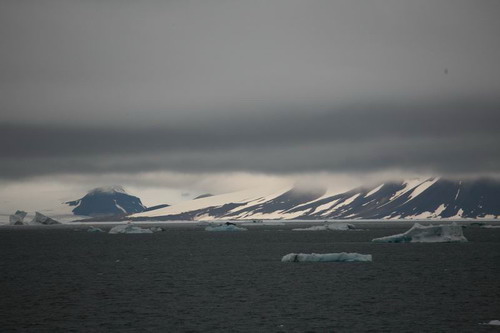
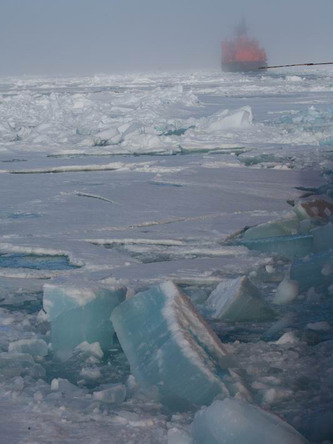 - Is your mind as clean as the ice?
- Is your mind as clean as the ice?
The ice is not always as clean as it looks, but I hope that my thoughts are clearer ...
- Soon the MVK Mobile polar museum opens in St. Petersburg, and we plan to supplement the exposition of our museum with some exhibits from the expedition. What is the role of such initiatives in your mind?
I would like to note that such exhibitions and expositions have a broad educational role, create and define a cultural layer of the present. This is especially important in a few transformed cultural worldview of today’s youth. The existence of such exhibitions, their development will undoubtedly contribute not only to the culture of our state, but also to the development of philosophy, morality and science in our country.
For me, Schmidt and Papanin are people of a special time. They were pioneers; in terms of their significance and to mankind they were equal to the first astronauts. After all, they got into absolutely uncharted territory. They were the first, and mankind gave them an entirely fair tribute for it. It should be noted that the Arctic has become more hospitable. We have more research and some new technical possibilities. But these people, who were the first, allowed to say that a person can work in these latitudes and get some very valuable information for understanding the conditions under which mankind lives and can live in the future.
Natalia Yurchenko
Press Secretary of Director General of MVK
The research vessel Akademik Fedorov, the Arktika-2007 expedition, the Arctic Ocean
